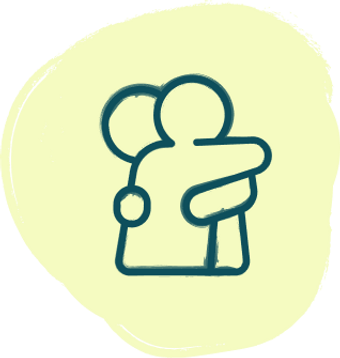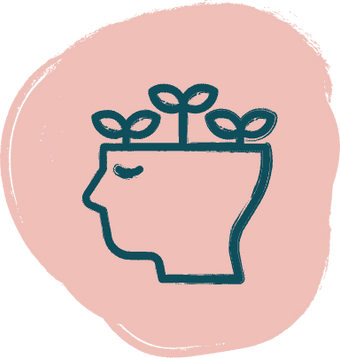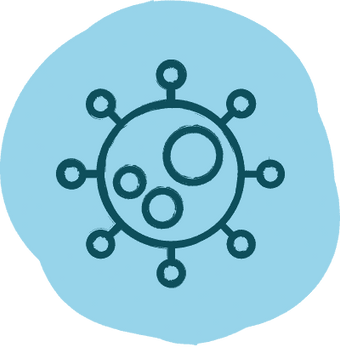- Dr. Vivek Murthy
Hello and welcome to House Calls. I'm Vivek Murthy and I have the honor of serving as US Surgeon General. I'd like to introduce you to Dr. Marisa G. Franco, who studies, writes, and teaches about friendship. and today we'll be talking about how to make and maintain our friendships. This is part two of a two-part conversation. As we started recording, this house calls conversation with Dr. Marisa G. Franco author of “Platonic: How the Science of Attachment Can Help You Make and Keep Friends,” I quickly sensed this episode would become two parts. There's just so much to say about the challenges we're experiencing with making and keeping friends, despite how essential friendship is to creating the connections that lead to healthy and happy lives. In part one of our conversation, Marisa and I talked about whether we have gotten rusty at friendship, what makes for high quality friendships, why men in particular find having deep friendships so difficult, and how we can set our kids up for having healthy friendships. We left off defining a word Marisa uses when discussing friendship, which is “propinquity.” In the context of friendship, she says propinquity is the idea that nearness contributes to connection. If we are in the same place with peopleover time, we are more likely to form connections. I have little doubt the pandemic impacted our propinquity, and in the second half of this episode, we will talk about loneliness, how to balance new friendships with old ones, the importance of being strategic about friendship and addressing conflict with friends. We'll start this second part of our conversation by defining another word related to friendship. It's a word you may have heard before,but like me, you may not know its full impact. As always, the House Calls team wants to hear from you. Write us at HouseCalls@hhs.gov, or reach out to us through social media. We'd also appreciate it if you'd take a moment to rate and review the podcast. - Well, continuing with our tradition of fun words, the other word is “phubbing” that I'd love to talk about. Maybe you could define that for people and tell them how it impacts their friendships.
- Dr. Marisa G. Franco
Yeah, so phubbing, it's when you are distracted on your phone, when you should be interacting with the person in front of you, you're interacting with your phone instead of them. And there's interesting research that finds that simply by having a phone on the table, people don't have as deep of a conversation as when there's no phone on the table. It's like literally a trigger for us that I think part of our brain's bandwidth is like, what's my phone doing? What's my phone doing? And it limits our ability to connect. And this is again, unconscious. People are asked, oh, do you think having this phone on the table affected your ability to connect? And resoundingly they say, no, it didn't matter. And for my students, I give them this assignment where I say, you're gonna hang out with someone else in the class and no one can be on their phone. And this is the youngest generation. If there's any time that there's an awkward silence, they tend to take out their phones, and they almost perceive it, interestingly to me, as a sign of respect. There's not an awkward silence because there's anything wrong with you, there's a silence because I have something very important to do on my phone. And so what we see from these interactions, what I saw from their interactions is that there was conversation skills materializing before my eyes. When I read their reflections, they were like, oh yeah, there was a silence, but to my great surprise, I thought of something else to say and the conversation continued and deepened. Whereas when you take out your phone and there's a silence, it's like you kind of… You kind of destruct the conversation where it was so there's not that opportunity for deepening. It's like, oh, we got to start all over again and get back to where we were. And so that's some of the issues with phones. I think when we're in person with people, to the extent that we can, we should just try to put them away, put them away because it's really going to limit our ability to connect with one another.
- Dr. Vivek Murthy
Yeah, you're exactly right. And I think this is so relevant when we think about time, right? Because most people say, gosh, I just don't have enough hours in the day to keep up with my friends or to reach out to new people, et cetera. But if you really wanna make your time count for more, it turns out that putting your phone away, giving people your full attention can sometimes make five minutes feel like 30 minutes. It's really striking. So also to mention that I love the data that you share, that research study which showed that when your phones are present, people feel worse about the quality of conversation. And that's even true when the phones are face down, which I think many people think if I just do that, then people will think I'm focused on them. But turns out not to be the case. You mentioned silence, especially with kids, and feeling that silence with our phones. I wanna talk a little bit more about kids because I have a particular concern about children. This goes beyond my own children, who, by the way, are quite shy, and I think a lot about how to make sure that they are able to reach out to people and build friendships over time. But when I talk to young people around the country, especially middle school students, high school students, college students, they speak to a deep loneliness that many of them feel. And even though they're surrounded by lots and lots of people on college campuses and school, the data keep telling us that young people have some of the highest rates of loneliness. So talk to us a little bit about how we should approach friendships in young people, and what we should be doing to support them.
- Dr. Marisa G. Franco
I feel for these young folks, because I think it was a blessing that my generation wasn't as plugged into technology. And obviously there's a lot of benefits that have come with being a more connected generation, and there's a lot of things that are being destigmatized and culture change is happening more quickly. But there's a lot of cost for your ability to build relationships with other people. Like specifically, right? Your ability to empathize with other people is in part dependent on your ability to look into their eyes, which convey emotion. So if you're always looking down at your phone, you're not getting enough practice in the art of empathy, which is so important for connection. And there's even a study that found that when when kids were told to put away their phone for a week afterward, at the end of the week, they displayed increases in their ability to recognize emotions in others. And it's not only that, it's that processing these complex emotions like empathy, like compassion, actually requires some stillness in our brain. It requires the default network to become active, which is a network in our brain that's active when we're kind of at rest. And that's what happens when we're at rest. Our brain starts to think about ourselves and others and process things like empathy and compassion. And this is obviously very harmful for people whose brains are developing and who are developing the capacity for these emotions. In some ways I think about the ways that social media and technologies has hijacked younger generation. I think we talk so much about intergenerational trauma, how trauma can be brought from parents onto kids. We talked about that in relation to attachment theory, but I think of it almost as a cross-generational trauma, because what does it mean even if you and your kids are trying to connect and not be on their phone, but everyone else is? They have to get used to being phubbed by everyone else around them. Or people don't wanna hang out in person as much because they're scrolling on TikTok or there's issues with feeling authentic because you feel like you always have to present yourself a certain way on social media. And so there's just so many extra difficulties and complications that this generation has faced, that they're not ready to face. And so I think some things that I can say is that we need to educate kids on how to use social media. That just scrolling over TikTok, that's another form of loneliness and isolation. It's gonna negatively impact your mental health. We also know that when using social media, something that makes it particularly harmful for your mental health is called social comparison orientation. And social comparison orientation means that you compare yourselves to people when you're on social media. And so being able to notice that, that that's that comparison that's happening that's making you feel worse. And instead active engagement on social media is found to promote connection and less loneliness, which means actually commenting on people's pages. sharing something positive, sharing your pictures, that promotes more connection and better mental health compared to that positive engagement which is just lurking. And so I wish all this generation could have a social media literacy class to figure out how to use it. But I also real… I also wish that there were policies in place, there was more friction in place that would limit these use of technologies, particularly around young children because a lot of these apps are designed in ways where they're going to hijack your brain. We know it too. We know it as adults. And kids have… They're prefrontal cortex is still developing and so they're even more vulnerable. And then I just wish that it was within our curriculum to give students… We need to give these students socio-emotional learning classes. We need to formalize that. We need to be teaching them how to connect. I think so much as a college professor that I'm teaching a generation where half of my students likely meet the criteria for a mental health diagnosis that should absolutely affect the ways… Yes.
- Dr. Vivek Murthy
Half of your students. That's incredible.
- Dr. Marisa G. Franco
Yeah. And so that should absolutely affect the ways that I am being a professor to these students. I have a mental health clause in my syllabus. If you have mental health issues, let's start with a conversation at the beginning. Let's figure out what adjustments you might need throughout the semester. Let's make this an open conversation. And my class is very much about hopefully helping them form connections and improving their mental health overall. But I think this should be formalized. If we understood the extent of this crisis, we would formalize these interventions a lot more than we do.
- Dr. Vivek Murthy
So this is very interesting about your class and very striking to hear how high the proportion is of kids who you're feeling have mental health concerns. When you do ask kids to come to you and to let them know, let you know if they're struggling and if they need accommodations, can you tell us perhaps a few examples of what kind of concerns kids tend to raise with you, and how do you respond to those to ensure that they can do well?
- Dr. Marisa G. Franco
Yeah, anxiety. I've had students… I have a presentation in the class where they do a 20-minute presentation on an interventions to address loneliness. But for some students that's literally unbearable to them. Not just uncomfortable but unbearable. And so I say explicitly, if this is uncomfortable for you, that's okay. But if this is unbearable for you, please tell me. And then I'll let them, for example, do a video presentation instead. I'll also just talk about having more flexibility around deadlines for people that feel like they have a lot… They're struggling with mental health issues as well, figuring out resources for them, like going to the counseling center. But of course it's more than just putting this clause in my syllabus. It's me becoming safe to them so that if they do have mental health issues, they'll actually tell me. And so I try to put a lot of intentionality in my class to be a professor that students feel like they could talk to and feel safe with and comfortable around. And that they don't come into my classroom and just feel threatened and alienated. I see, as a professor, belonging as part of the process of learning, right? Because like we said, when we're lonely, our brain is focusing on threat. It's very hard to learn from that place. So to me it's like doing work to help my students belong is doing work to help them learn effectively. And so actually, I got this from you Vivek. You were on a podcast and you said that you would have people at work, let me know if I butchered this, share pictures. Each week someone would share personal pictures, and so we institutionalized that where it had students share pictures, fun facts about themselves each week. At the end of class, I have an appreciation hat where you have students share something that they appreciated that another student said and get a little gift for them. I also think about how as a professor, things are so top down, and in a community, a community is not top down. Each person is taking responsibility for the outcomes of the community. And so I kind of democratize the learning a little bit. I have them each do a connection project, a research-based project to get the class to connect with one another. And something new that I'm trying this semester, so in my class I had one class where they were hanging out outside of class. They would go to lunch together every day. Another class where they weren't hanging out as much. And I was thinking what is the difference between these two classes? And here's what I came up with. I had one student in one of my classes who I would call an igniter. She would be the one person to say, "Anybody wanna go to lunch," at the end of class. And because she was an igniter, 12 to 15 other students in the class now feel more connected because of that one igniter that's willing to make the ask. And so if we had more igniters in general in our society, so many people would be less lonely because one person is willing to create that group and ignite that group. So I'm also trying to formalize the role of the igniter, and be like, if you do… If you wanna be the igniter of this class, let me know, and you don't have to do the final presentation. You're just gonna have to do a reflection on igniting and how to foster… Your observations about how to foster connection from this role.
- Dr. Vivek Murthy
I love that about the igniters. How do we get more igniters in society who do serve as that spark to bring people together? And are they out there but just not igniting because they're worried that people may not respond?
- Dr. Marisa G. Franco
Yeah, I mean, I would… I'm speculating here. I wish I could do more formal research on the igniter. First of all, they're more likely… When I've asked Savannah, who's the student in my class who is the igniter, she said she really values connection and that she thinks that being rejected isn't as scary as not being connected. So in some ways she's not as afraid of rejection as other people. I think she's secure attachment style. Obviously it really helps with the fears of being rejected from other people. So making sure that people feel more secure, I think. Teaching people things like you need to initiate. You can't wait for things to happen organically. You have to put yourself out there. Teaching people things on how important connection is to your life, right? So in my class, and I'm sure you've also come across this research, that meta-analysis have found, for example, that having healthy diet makes you live longer, exercising makes you live longer, but social connection does a lot more than either of those things, significantly more. Now, unfortunately, sometimes my students are like, "I'm gonna go eat candy and hang out with my friends." And I'm like, that is not the takeaway here. Do all of the things. But yes, I don't know. I don't know, Vivek. I would honestly be interested in hearing your perception of this. We do have a lot of research at the level of public health crisis, just what a sort of public health crisis loneliness is. And I know you're doing a lot of work to try to make sure that we are engaging resources towards making people feel more connected and that this is formalized and that this is systemic. But I guess from where I'm standing, and you could let me know if I'm wrong, there's just not enough. There's not enough energy around making people feel connected. UK has their Minister of Loneliness, and the New Zealand's metric for their country's success, part of it is wellbeing. And especially at the level of disconnection we're at, and we know from the research how much it affects us. It feels like there's a lot more energy going into things like healthy eating or there's a lot more energy going into things like tobacco use. And it's just like, to me, I wonder why is there that disconnect when we have this research that tells us just how fatal disconnection is. And yeah, what do you think we could do about it?
- Dr. Vivek Murthy
Well, I think it's the exact right question to ask, because you're right, the data is there. The research tells us this would be really important. But it's interesting, we still, I think in society, look at our relationships as a nice to have, but not always a necessary. I think we still prioritize other things with our time and attention, energy, namely work, before we do our relationships. And I don't blame individuals for that because that's the message they get from society from a really young age. So I do think that we've got to make that shift. There are actually some initiatives that our office is working on that we hope to be able to announce soon to help nudge hopefully the country and folks even beyond our country, to recognize that social connection actually needs to be not at the periphery, but at the center of how we approach health, how we think about productivity in the workplace, how we think about our kids and their performance in school, and how we think about happiness and fulfillment. So this is a really important effort and I'm so glad that there are people like you who are really focused on this. I know that our time, Marisa, is short. So I wanna make sure I ask you a few other things that have been on my mind. We talked about how to build friendships. I wanna talk a little bit about how to keep friendships and how to deepen the friendships that we have. This is a source of conversation between me and my wife often too, because at the risk of oversharing, I will tell you that she often tells me that I don't do enough to make new friends. And I often say, well, I wanna do a better job staying in touch with my old friends because I know them and I love them and I wanna… I want more of them in my life. But there's clearly a tension there. How should people think about old friends versus new friends in terms of how we invest our time and energy?
- Dr. Marisa G. Franco
This is such a great question. I think I was just thinking about how some people might not consider me a good friend. And that's not because I don't think I'm a good friend, it's because I have to discern who is my closest friendships that I really wanna invest in, and who are the friendships that are going to be more on the fringe, and plan my effort and energy and intention accordingly. And I think the problem is that we're not strategic about… For me too, just not being strategic about where I'm investing my time and energy. It's like anyone who reaches out to me, I'll be like, let me see if I have a time. Instead of being like, I wanna invest in these people. I'm going to reach out to them. I'm going to pick them up at the airport. I'm going to give them gifts. Sometimes I'll pay for us to go to a lunch together. When I'm vulnerable, I'm going to make sure that I call them. That discernment process is so important, being able to identify who are the people that you wanna invest in, in this large network that you might have. And so again, not everyone is lucky enough to have that network to be able to do that discernment. But once you know that, you can then engage strategically, instead of being a passive agent where you're just like, all right, whoever reaches out to me, whoever comes up on my social media feed, that's who I'm going to try to keep connecting to. You can just literally write down the people that you wanna form deeper connections with and the ways that you are going to engage them in this way. And for me, like for example, I talked about the wellness group. I think that's a really good idea with people that you wanna get closer to deepen, maintain the friendship, formalize a regular time to meet up that's already on the calendar so you don't have to do all the logistics and the back and forth, "When are we gonna hang out?" "When are you…" "Are you free this day?" That just shows that it's a priority, for example, in your life. Do things like… And there's this phenomenon I call diagnostic moments. Diagnostic moments are when you feel high, very high and very low. And because we're more likely to remember things that propel strong emotion from us, these diagnostic moments tend to be more highly deterministic of the outcomes in the friendship. Are you showing up in those high moments and at those low moments? And so that is I think, the time that you really wanna be intentional about showing up. When your friend's going through distress, right? Can we get some meals for my friend? Can I text them and see how they're doing more? Can I call them more often when they're going through difficulty, when they're experience a joy and a success? Like when they're graduating, I have to get… Let me go on my way to get them a gift or to take them out to lunch or to get to celebrate or to get them some flowers. Let me be really intentional about those diagnostic moments. Because I think, Vivek, overall, it feels sometimes like I don't have the time and this is taking so much time for me. But I think the point that you've emphasized is if you're strategic about the time, if you're strategic about knowing when it's really important to invest the time, it doesn't necessarily have to take a ton of time as much as it is using the time in particular ways and understanding the moments that are particularly important in the friendship.
- Dr. Vivek Murthy
I think what you're saying so eloquently is that there's no shame in being strategic about our friendships. And I say that as-
- Dr. Marisa G. Franco
Yes.
- Dr. Vivek Murthy
Because when I was younger, when I was in school, I actually used to.., I was a very shy kid and it wasn't easy always for me to make friends, but I wanted to hang out with people. And there were certain people I was really curious about and wanted to spend more time with them. And I would periodically make a list of people that I wanted to spend more time with and be more intentional about having lunch with or going on a walk with or just hanging out with. And at times though, I felt a little ashamed of that. Like I never admitted that to anyone else that I would make those lists because I didn't… I had this notion that friendships should just happen spontaneously. And that's what authentic friendships were about. And that if he were planning or trying to, that somehow that was too contrived and it wasn't a good thing. But what you're helping me understand, and I think hopefully many others, is that it's not only okay to be strategic about your friendships, but it's actually really important at a time where people have less and less time and there's more competition for their energy.
- Dr. Marisa G. Franco
Absolutely, absolutely. And I think it gets at, again, because I think with our marriages, our spouse, we're like, we need to plan a date night, right? There is this importance of being strategic and being intentional, and sometimes that falls in the wayside for friends. And as someone who's very interested in leveling the hierarchy between a spouse and my friendships, sometimes I literally have to ask myself for this close group of friends that I have discerned that I very much wanna invest in. I have to ask myself, would I do this for a spouse? My friend who was coming back from a flight and she was getting it at midnight, and I was like, do I offer to give her a ride? I really love my sleep. But I was like, I would do this for a spouse. Absolutely. And so then I was like, yeah, I'm gonna pick you up from your airport. You are my important group of people that I want to invest in. And so I think ironically sometimes that question of what would I do for a spouse in this situation? Asking ourselves that same question for those friends we would really wanna get close to and have intimacy with. Because again, intimacy is intimacy. It's not contained to this intimacy only means this in your romantic partnership. You have these transferrable skills that you may not recognize as such, all the things that you might have done to make your marriage successful. How can you be more creative about transferring them to your friendships? That's what's gonna help deepen them.
- Dr. Vivek Murthy
Oh, it's beautifully put. I wanna talk about the other end of the spectrum, which is ending friendships. There are some friendships that we form, but then they change and they evolve over time and it's not always easy to let those friendships go, or to know if that's the right thing to do versus investing and trying to revitalize their friendship. So how do you think about the evolution of friendships and how do we know when it's the right thing to do to move away from a friendship?
- Dr. Marisa G. Franco
I think about it like friendship is a book and some chapters of it are gonna be kind of crummy, but was the entire book crummy or is it a chapter? And I think what I hope that, that does is normalize that there's ebbs and flows in friendships. There's periods of closeness and then periods of distance and then periods of closeness again. I've talked to older folks who are sort of like, yeah, we had young kids and my friends kind of pulled away for a little while, but now they come back. Everybody's retired now and they're right back. And so there is this kind of ebb and flow with friendships. And the question is when we're at that ebb, is it a sign of an ending, or is it a sign that we need to wait it out? And so I think it compels us to engage in this process of reflection where we're like, is this an issue that has kind of always been there and is kind of just getting to me more and more? Or is this a situational issue that is going to pass in the long term, and that maybe I need to sort of stick it out or welcome the ebbing and flowing and welcome the fluidity of the friendship, and just assume that they like me and assume that this will continue to pick up. There is a study on long-distance friendships that found that perceiving them as flexible but not fragile is what contributed to them being maintained. Which means if you haven't talked to them in a while, assuming you're still friends, and you can just kind of pick up where you left off. And so I think about that similarly with our friendships, and we need to reflect on the larger story of the friendship to decide what is the best course of action.
- Dr. Vivek Murthy
And what about conflict? Conflict in friendship I think can be so tricky. And as somebody who I know my tendencies, especially when I was younger, was to be conflict avoidant, right? And dealing with those conflicts in friendships is always a tricky thing for me. Do I confront it? Do I not? If I'm not, am I actually hurting the friendship long term or am I risking blowing it up? How do you think about how to approach conflict and friendship?
- Dr. Marisa G. Franco
So I know we're way less likely to do it than working through conflict with our spouse. And I think that that's a missed opportunity. This is something I have to… I'm still growing in. I remember reading a study that found that having open conflict in an empathic way is actually linked to deeper intimacy. And that made me question my avoiding conflict, just trying to get over it on my own, because the truth was I wasn't getting over it on my own. I was just wanting to withdraw from the person. And when you're ready to withdraw, it is an act of love to have the conflict instead of withdrawing. Because again, I think a lot of times we were scared that if I bring this up, it's gonna make things worse and it might harm our friendship, but at least there's a chance for the friendship to survive. If you just withdraw, there's absolutely no chance. And when I had to address conflict with my best friend, I was upset at her for a bunch of smaller things that kind of accumulated. And I think we see this a lot in friendship. There's things that get left unsaid that start to accumulate over time. And one of the things was, I sent you a book chapter to get your feedback on, you never responded to me. And when I addressed the conflict with her, she was like, "Oh, I did email you back." And I was like, oh you did? She was like, "Yeah." And I was like, oh. So by not having this conflict, I was holding her guilty without giving her a trial, which was really unfair to her. And I think that happens a lot of time. Our friends might be going through an extenuating circumstance. They might be completely oblivious and we might assume that they had negative intent or negative intentionality. And so that conflict is more like a reconciliation where we're able to kind of learn what's going on for them. That being said, it's not having conflict that will deepen and maintain your friendships. It's how you have it. You have to do something called framing, for example, which is entering the conflict by saying I love you. I feel so close to you, I don't want anything to get between us, which is why I wanted to bring this up. You have to use your "I" statements like, "I felt hurt when this happened." You have to perspective take, say, "What was going on for you in that moment?" You have to deescalate if they're like, well, actually you're a bad friend for this, this and this. And then it's, well this is what I need, this is what you need. How do we work together to make sure we're both getting what we need in these situations? It's those different skill sets that are going to allow you to engage in conflict that brings you closer. The conflict that's like, "You suck and I wanna tell you how disappointing you are," that is going to damage your friendship. So the nuance is I think we need to have conflict instead of withdrawing. Again, we don't need to have conflict about everything, but when we get to the point where we notice our ourselves withdrawing, that's a sign when it's time to bring something up and we need to learn how to do it in really loving ways.
- Dr. Vivek Murthy
That's very helpful. And I think such an important part of resolving conflict is dialogue. And this is something I'd love to get your take on. When I talk to people about talking to each other about the nature of dialogue, many people say that it feels like it's gotten just harder for us to talk to one another. And this particularly becomes an issue in making new friends. People are worried that they'll use the wrong words, say the wrong thing, that they'll be attacked. It seems like people's intentions matter less these days. And so that I think it's had a chilling effect, to some extent, on dialogue. And how do you think about this sort of evolving nature of dialogue? Are you concerned that it's become a bit harder for folks to talk to one another?
- Dr. Marisa G. Franco
I think it has in some ways become harder. I just think that when you have a relationship with someone, you're more likely to be forgiving when there's an issue or problem that comes up. And I think we can think of this on a societal scale, right? If I have a relationship with this group of people, I'm more likely to be forgiving when someone within that group of people has an issue or has a problem, for example, in our communication patterns. And so that's why I can think of how disconnection and breakdowns of community can make it very hard for us at a societal scale to be able to dialogue with each other. And that's why I think there's this… I don't remember the name, but there's a recent book that came out and it's about loneliness. And it kind of talks about the intersections between loneliness and democracy. That friendship is a microcosm of democracy, right? Because you're like, you have these needs, I have these needs. How are we working to figure out what fits for both of us? And the research on loneliness does find that, for example, people that are more lonely are more likely to support right wing populist leaders. People that are more lonely are more likely to become cynical and distrusting of social institutions. So we have to recognize that even how we engage politically is a representation of our experiences of connection or lack thereof.
- Dr. Vivek Murthy
Yeah, it certainly has wide ranging implications. As we wrap, I have a couple of rapid questions I'd love to ask you. One is, do you have a favorite song about friendship?
- Dr. Marisa G. Franco
That's a good question. I'm just trying to think about the songs about friendship that I know. There's "Why Can't We Be Friends?" Why can't we be… That's a good one.
- Dr. Vivek Murthy
Oh yeah.
- Dr. Marisa G. Franco
Just a friend. You say I'm just a friend, which-
- Dr. Vivek Murthy
Oh yeah.
- Dr. Marisa G. Franco
Maybe not that one. Oh, "We Are the Champions." That's a cool one.
- Dr. Vivek Murthy
I love these, these are old school songs. This is my style. I like it.
- Dr. Marisa G. Franco
Yeah.
- Dr. Vivek Murthy
And also, is there a friendship that you admire? It could be a historical friendship between two people, it could be two folks who perhaps aren't well known but you know in your life.
- Dr. Marisa G. Franco
I think I just wanna know more about Michelle Obama's friendship. She's been talking a lot about friendships these days. In her recent memoir, she's talking a lot about friendship and how important it is. And she's very upfront that she couldn't get all of her needs met through Barack. And yeah, I'm very interested in our ability to connect when we're intimidated by someone because it puts us on an inherent hierarchy with them. And when we're on a hierarchy with someone, it's hard to be as authentic because we're like, "I need to show them my best side of me." And then if we feel like we're higher up on the hierarchy, we don't think we can learn as much from them. We don't have as much interest. So how does a First Lady make friends and how did she navigate that hierarchy as a First Lady and that intimidation? I think I would just be really interested in, yeah. So Michelle, just give me a call.
- Dr. Vivek Murthy
I think that is a fascinating question. A fascinating question. And finally, this has first of all just been such a wonderful conversation, Marisa, and to close this out, tell me what gives you hope as you look to the future?
- Dr. Marisa G. Franco
You know what gives me hope when it comes to friendship and connection, it is absolutely queer communities. Because I think in some ways when you realize the societal message doesn't work for me in one way around your sexuality, you're a lot more likely to question whether the societal messages work in a lot more other ways. And so we're seeing I think a lot more innovative ideas about friendship and connection, whether that's chosen family or platonic life partners or polyamorous situations where you have multiple people that you're in a relationship with. And I think if we were all more exposed to these different ways of living, we wouldn't have to feel like we have to adapt to loneliness and habituate to it in the same way. We would realize that there's just so many other options for us as to how to love.
- Dr. Vivek Murthy
Oh, that is so well put. And I'm so grateful that we had this time to talk about friendships. I'm incredibly grateful for all the work you've been doing to help people understand friendships and build more friendships. I think this is a lonely time for a lot of people, and my hope is that we can build a broader movement to rebuild connection and community in America and around the world because this has truly become a global crisis. So thank you again for joining me on House Calls, Marisa. So grateful for you and I hope a lot of people hear about your work, read your book and take your advice to build better friendships in their life. That concludes this conversation with Dr. Marisa G. Franco. Join me for the next episode of House Calls with Dr. Vivek Murthy. Wishing you all health and happiness.
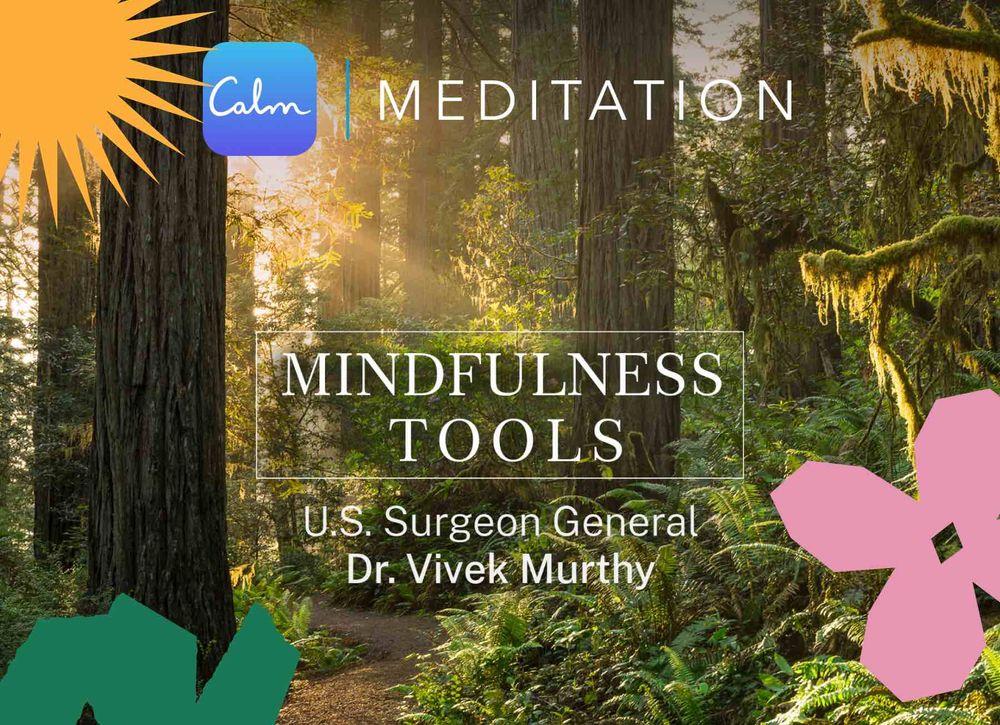
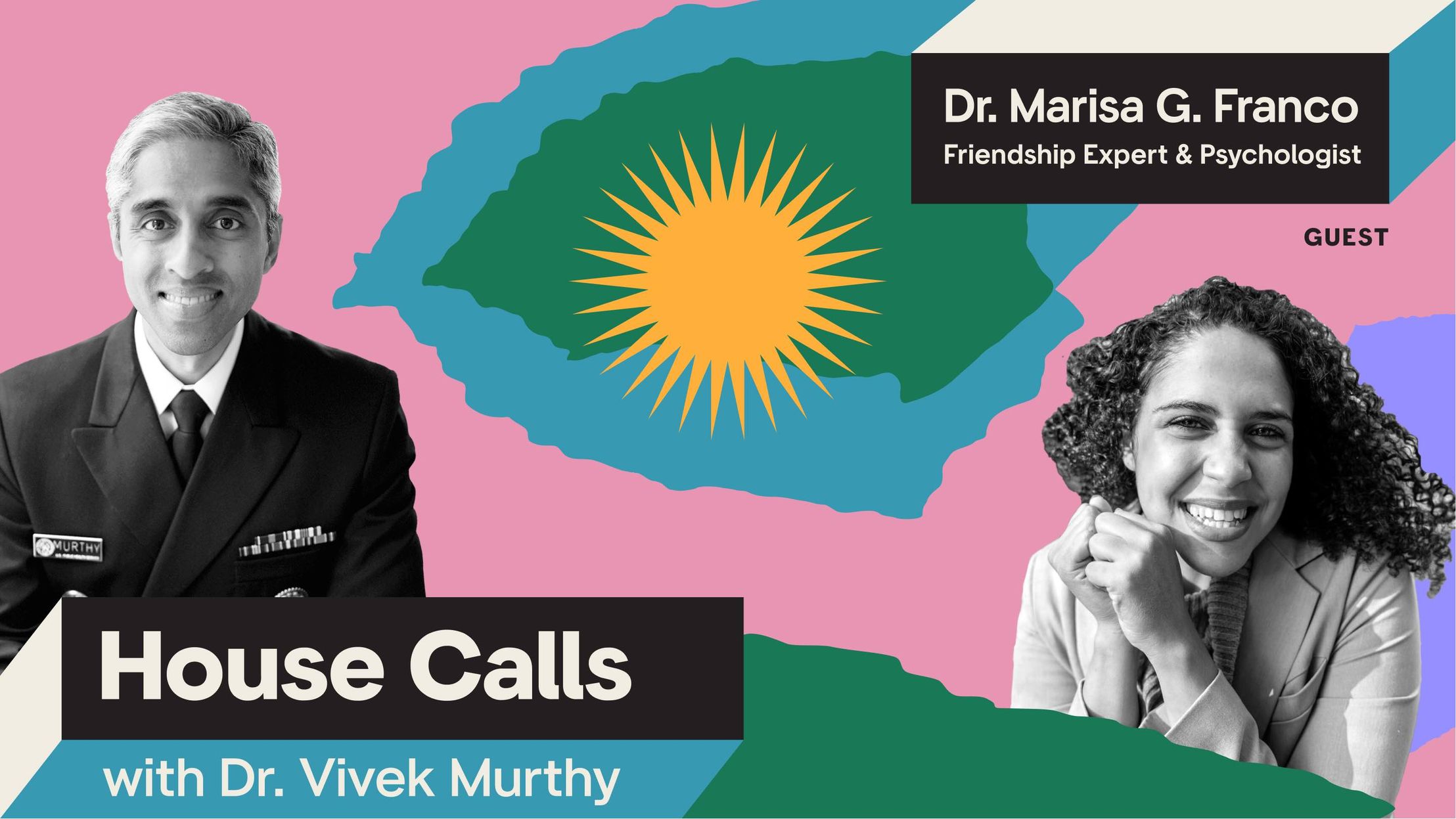
 Youtube
Youtube
